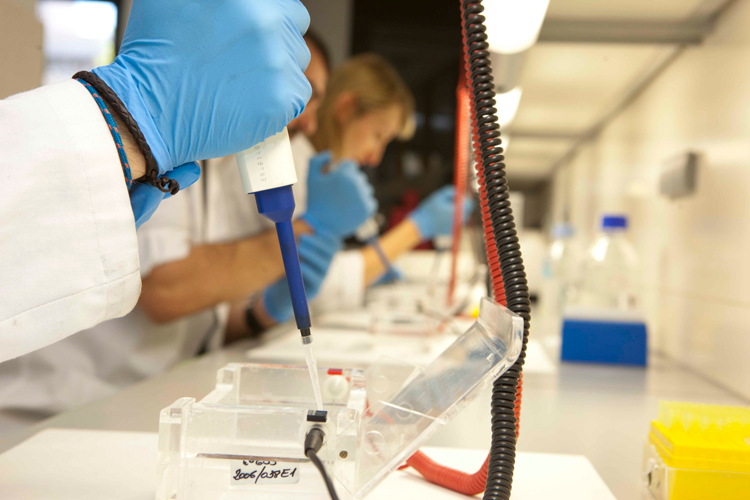IQS is part of the Pediatric Innovation Hub, an R+D+i network whose main objective is to develop a program for the valuation and transfer of research results in the pediatric field.

July witnessed the inauguration of the new Paediatric Innovation Hub (HIP), an R&D&I network whose main objective is to develop a programme to assess and transfer research results in the paediatric field. This hub was created thanks to funding from the Government of Catalonia Agency for the Management of University and Research Grants (AGAUR) and the European Regional Development Fund (ERDF).
The main objective of the HIP network is to promote research result assessment and transfer to provide solutions that have been designed, developed, and tested with and for children, involving R&D&I centres, hospitals, universities, companies, patients and families, investors, and regulatory authorities. By placing the main focus on children, this innovation strategy aims to advance towards a new collaborative paediatric ecosystem, involving children in identifying the needs, guidance, and evaluation of the entire transfer process, with the goal of having access to high-quality medicines and medical devices designed for children and their needs.
IQS’s Contribution
Led by the Materials Engineering Research Group (GEMAT) and its coordinator, Dr Salvador Borrós, IQS forms part of the HIP network along with 75 research centres in Catalonia, with the Sant Joan de Déu Research Institute as the general coordinator of the network.
The GEMAT research group has extensive experience in the field of paediatric surgery: this group was one of the members of the Cellex Project on high-precision technologies applied to foetal surgery, promoted by the Celles Foundation and coordinated by BCNatal. In addition, the group forms part of the QuirofAM Project, within the RIS3CAT strategy of the Government of Catalonia, aimed at the application of additive manufacturing (3D printing) and the use of biomaterials in the surgical field.
In the words of Dr Borrós, “it’s especially exciting to form part of this network, as the research is focused on solving health problems that some children unfortunately suffer from, an area to which IQS is fully committed.”
The members of the Paediatric Innovation Hub
The Paediatric Innovation Hub is formed by 76 prestigious research institutions in Catalonia, including:
The general coordinator of the HIP, Institut de Recerca Sant Joan de Déu; Institut Químic de Sarrià; Institut d'Investigació Biomèdica de Girona; ISGlobal; Center of Regenerative Medicine in Barcelona; Institut de Recerca Biomedica de Barcelona; Institut d'Investigació Biomèdica de Bellvitge; Institut de Recerca en Ciències de la Salut Germans Trias i Pujol; Institute for Bioengineering of Catalonia; Institut d'Investigacions Biomèdiques August Pi i Sunyer; Institut Hospital del Mar d'Investigacions Mèdiques; Vall d'Hebron Research Institute; Institut de Ciències Fotòniques; Universitat de Barcelona; Universitat Autònoma de Barcelona; BCN MedTech · UPF-UAB; CSIC; UIC-Mútua Terrassa; Universitat Rovira i Virgili; Universitat Politècnica de Catalunya; Universitat Pompeu Fabra; BCNatal (Hospital Sant Joan de Déu – Hospital Clínic); Hospital Vall d'Hebron; Hospital Sant Pau; Parc Taulí; Hospital Clínic; Hospital Universitari Dr. Josep Trueta; LEITAT; Fundació CIM; Fundació I2CAT; EURECAT.


"This project has been co-financed by the European Union through the European Regional Development Fund (ERDF)"











